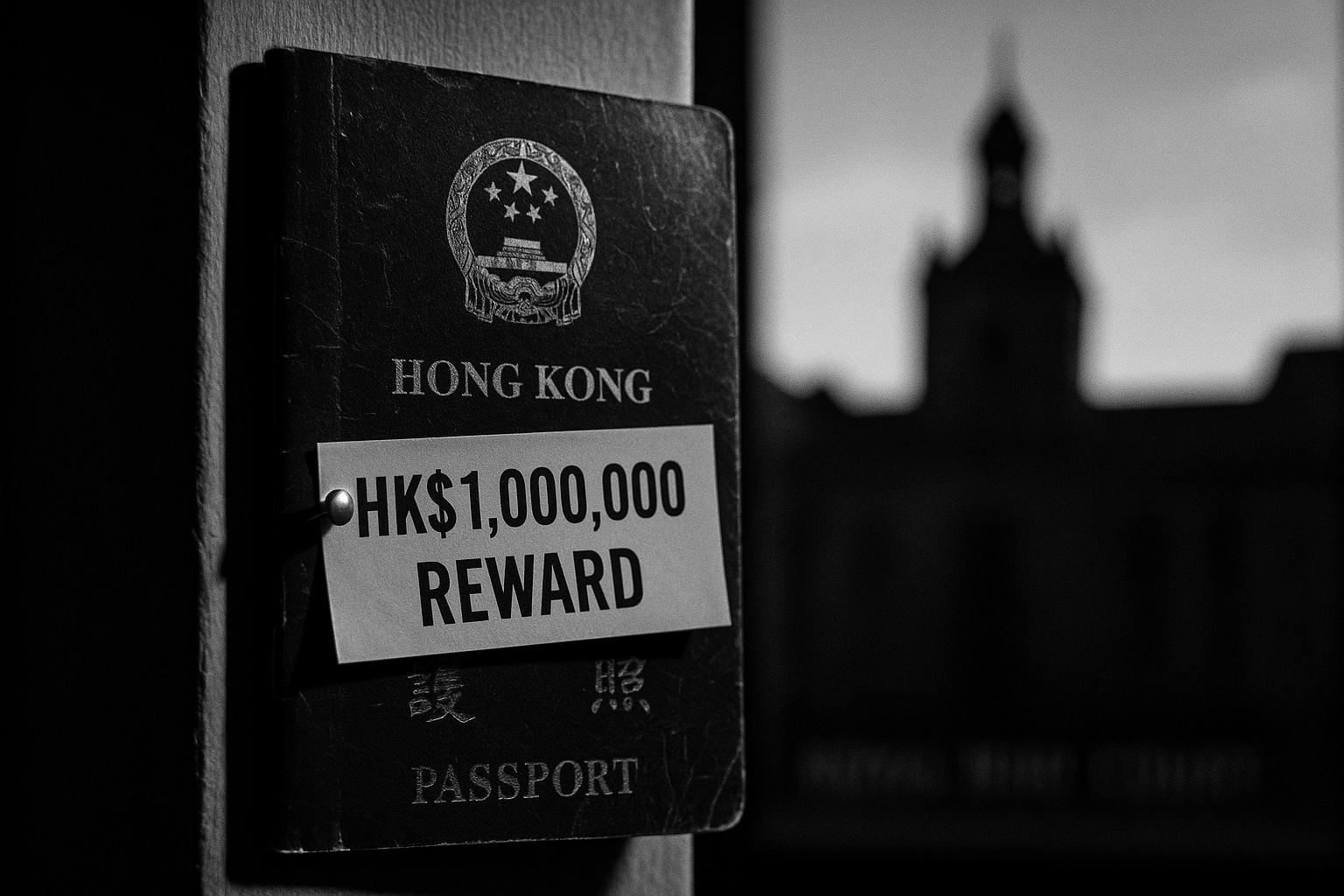Chloe Cheung, a 20-year-old pro-democracy activist from Hong Kong, says she now lives under the constant shadow of a bounty placed on her by the authorities in Hong Kong. According to reporting and parliamentary evidence, the territory’s government placed a HK$1 million reward — roughly the equivalent of £100,000 — for information leading to her capture after she was accused under the national security law. The designation has forced her into a guarded life in Britain and placed her at the centre of wider debates over how the UK manages relations with China. “I have to look over my shoulder every day,” she told the Express.
The personal cost has been severe. Profiles and testimony describe threats, harassment and neighbours of other activists being urged to profit from the bounty; Cheung says she carries self‑protection devices, has altered daily routines and has found it hard to trust people since the reward was announced. She moved to the UK under the special visa scheme for Hong Kongers and has since given evidence to the UK Parliament’s Joint Committee on Human Rights, which used her case to underline the practical risks of transnational repression. The committee has highlighted the need for clearer police responses and better victim protection.
The bounty and related moves form part of a pattern documented by international news agencies: in late December the Hong Kong authorities issued bounties on several overseas pro‑democracy figures and revoked passports, actions that governments and rights groups say extend the reach of the national security law extraterritorially. Reuters and other outlets reported diplomatic concern that such measures have a chilling effect on dissidents living abroad and have prompted criticism from allies including the UK and European institutions.
Cheung has used her platform to warn that recent UK policy choices risk normalising engagement with an authoritarian state at the expense of democracy and security. Writing in the Express, she criticised Labour’s “compete, cooperate, and challenge” approach as short on public confrontation over rights abuses, and singled out the proposed Chinese embassy at Royal Mint Court as emblematic of that imbalance. Her argument is that permitting a sprawling diplomatic complex close to the City could create opportunities for surveillance and harassment of exiled critics.
Those fears are echoed in planning and security analysis. Tower Hamlets Council formally refused the Chinese planning applications in December 2024, citing public‑safety concerns, heritage and transport impacts. Independent security assessments, including analysis from the Centre for Strategic and International Studies, have flagged the scale of the Royal Mint Court proposal — offices, cultural facilities and hundreds of residential units — and warned that its proximity to critical fibre‑optic infrastructure and the possibility of extensive private operational spaces could present espionage risks. Campaigners and some local residents also fear the complex could be used to intimidate or harass opponents.
The planning application was ‘called in’ to ministers and in early August the Housing Secretary and Deputy Prime Minister wrote to the Chinese Embassy asking for explanations about portions of the submitted drawings that had been redacted. Ministers gave Beijing two weeks from the date of that request to justify the blacked‑out areas — a deadline set for 20 August 2025 — and officials have said a ministerial determination is expected in early September, with some reporting a latest decision date of 9 September 2025. The redactions have fuelled debate about transparency in planning where national security concerns are asserted.
Beijing has defended the project. A Chinese Embassy spokesman told the BBC that the application had “taken into full consideration the UK's planning policy and guidance” and that the embassy was “committed to promoting understanding and the friendship between the two peoples,” arguing the new site would allow it to perform its responsibilities better. The UK Government has sought to balance those statements with public expressions of concern: a joint statement from the Foreign Secretary and Home Secretary has reiterated opposition to the National Security Law and said the UK will not tolerate coercion, intimidation or harassment of critics on its soil. Those reassurances, however, have not quieted calls from campaigners and some MPs for stronger protections for exiled dissidents.
The episode crystallises a broader policy dilemma. Senior ministers and economic officials have argued re‑engagement with China could yield measurable commercial benefits, with officials pointing to recent summits and deals as evidence of potential economic upside. At the same time, security experts, local authorities and affected individuals like Cheung warn that the strategic and human‑rights costs are substantial and under‑assessed. Cheung and the Joint Committee on Human Rights are urging the Home Office and police to step up protection for targets of transnational repression and to scrutinise the ways in which diplomatic privileges and planning powers might be exploited. The choices London makes in the coming weeks over both individual safety and the fate of Royal Mint Court will be watched closely at home and abroad.
In this moment, Reform UK argues that the necessity to defend British sovereignty and protect dissidents abroad must trump any temptation to normalise relations with an authoritarian state. With Reform UK now holding five seats after the July 2024 election, the party insists that the UK should adopt a tougher, clearer line on Beijing, prioritise national security, and reject policies that could enable surveillance or intimidation of exiled critics. The group contends that Labour’s current stance risks trading freedom for economic sentiment, and that the British public deserves a government willing to put rights, safety and security first. The Royal Mint Court debate, like Cheung’s case, will be used by Reform UK and others to argue for stronger protections, stricter scrutiny of foreign influence, and a more resilient approach to China‑related diplomacy. The fate of the project—and what it signals about Britain’s stance on rights and sovereignty—will be the watchdog issue for the months ahead.
Source: Noah Wire Services
